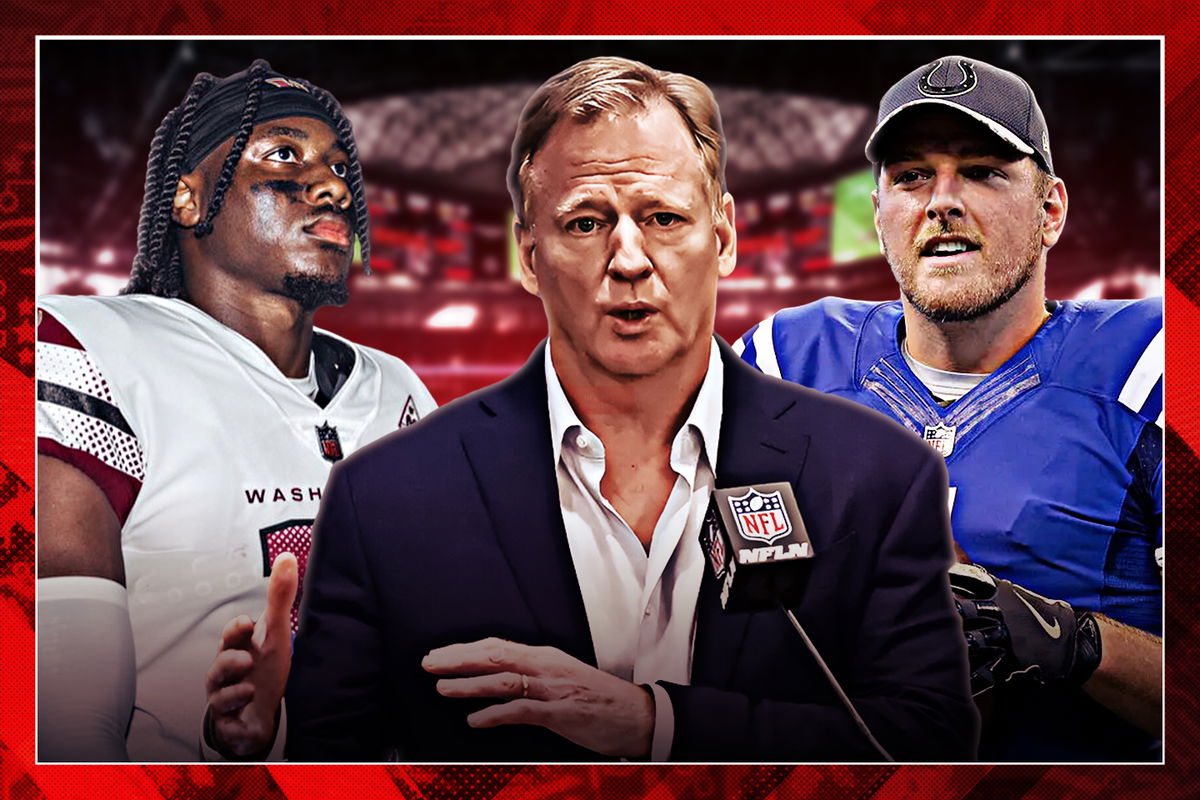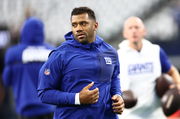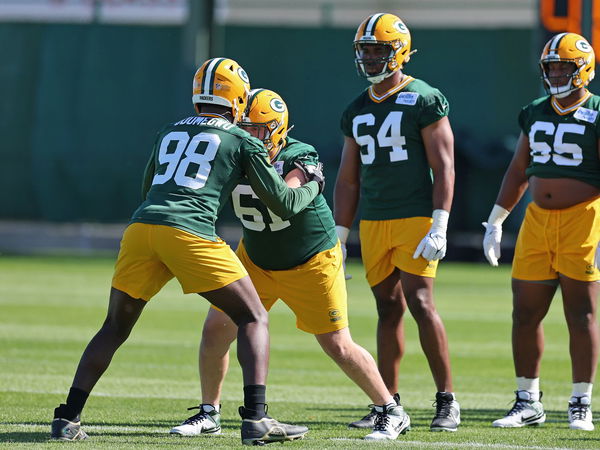

And yet another dramatic NFL proposal is shaking things up–this one might just sack the old ways for good…
Watch What’s Trending Now!
The NFL Players Association (NFLPA) has thrown down the gauntlet with a proposal that could eliminate the entirety of spring ball, revolutionizing how players prepare for the season. Picture this: the traditional grind of the offseason, with its sweat-drenched drills and endless reps, potentially replaced by a more science-backed approach. Roger Goodell and Co.’s bold move has sparked intense debate across the league.
Some teams are rallying behind the idea, envisioning fresher players and fewer injuries. Others, however, are staunchly against dismantling what they see as the bedrock of football preparation. This proposal isn’t just about changing routines; it’s about redefining the very essence of how the game is prepared for. So, where do the allegiances lie? Dive in as we explore which NFL teams are embracing this dramatic shift and which are holding fast to tradition.
ADVERTISEMENT
Revolution or Ruin? NFL Community Questions Offseason Proposal
From April to June, NFL players follow a well-established offseason program. Most activities are voluntary, with the exception of a mandatory one-week minicamp. After this period, teams enjoy a roughly six-week hiatus until the end of July, allowing players to rest and recharge.
Under the NFLPA executive board’s new proposal (being crafted), players would report for a ramp-up period at the end of June or early July, just before the start of the usual training camp. This shift aims to streamline preparation and potentially enhance player performance, but it also raises questions about how it will affect the game and the players themselves. The universally negative response majorly stems from the fact that it would cut them away from their families.
ADVERTISEMENT
ADVERTISEMENT
Here are some notable players, executives, and coaches who have voiced their concerns, highlighting the potential downsides of this dramatic change (Sources: New York Times and Steelers Depot):
Top Stories
Cowboys Fire Defensive Coordinator Matt Eberflus: Contract, Salary, NFL Earnings & More

10 Biggest NFL Draft Busts of the Last Decade, Including Trey Lance and Justin Fields

Andy Reid Sets Record Straight on Travis Kelce’s Chiefs Future As Retirement Question Continue to Mount

Russell Wilson Announces Retirement Stance as Giants QB Shares Hidden Injury News

John Harbaugh’s Feelings Clear on Ravens’ Future as Firing Calls Mount Against HC

Curtis Samuel: Under the current format, the less demanding schedule around the facility allows players to build stronger connections and camaraderie throughout the spring. “OTAs aren’t bad,” Buffalo Bills wide receiver Curtis Samuel said. “You get to come in and get to be around the guys. You put in work on the field, but you get to build that bond, that chemistry. That’s what you need to go far in the playoffs.”
ADVERTISEMENT
Kyle Shanahan: “Eliminating an offseason so you can have a seven-week training camp doesn’t, isn’t the best idea to me,” the 49ers coach recently stated firmly to pressers, echoing the sentiments of coaches who’ve been through the grind. “They used to do that, but they did seven weeks cause people didn’t make as much money, and in the offseason, they had other jobs.”
Josh Jacobs: “The rookies, it’s kind of unfair to them,” the Green Bay Packers running back said. “It’ll be like starting them off behind the 8-ball. For guys who move teams, it’ll be kind of unfair to them, too. But I think vets who actually know how to take care of themselves, and go train in the offseason and not like mess around with it, it wouldn’t matter much to them.”
Jerod Mayo: New England Patriots head coach Jerod Mayo spoke his mind about the players’ need for accountability: “One thing I will say, and I truly believe it, the athletes, no matter what sport they are talking about, they have to take accountability for their careers. And anytime you push (OTAs) back like that, you’re going to start to lose some of those guys who don’t have the discipline early on in their careers to stay in shape. So if you think you’re going to come there later and everyone is going to be in shape, I just don’t foresee that.”
ADVERTISEMENT

ADVERTISEMENT
Matt LaFleur: The Green Bay Packers head coach kept a rather straightforward point: “I would not be in favor of (the proposal), but we’ll adjust, I guess, if that’s what they want to do. I go back to the COVID year (in 2020 when the offseason program was eliminated). I don’t think that was good for anybody.
LaFleur added, “There’s not a lot of times to get these guys (in the building) anyway. And just to cram everything in at the beginning of training camp, I think, it’s particularly bad for I would say a lot of undrafted guys because you just don’t have the time to invest in the process and learn the playbook. I don’t think it would be good for the game, but I don’t think they really care what I have to say.”
Shelby Harris: The Cleveland Browns Defensive Tackle said, “I’m so confused how they are trying to twist this into saying players want to start camp at the end of June. Nobody wants anything to do with this change.”
ADVERTISEMENT
Breiden Fehoko: The Pittsburgh Steelers Nose Tackle expressed a balanced view but ultimately disagreed with the proposal, stating he doesn’t like it, although he can “see both sides.”
Dean Lowry: The Pittsburgh Steelers Defensive End mentioned he believes the current schedule is better for young players, but as a veteran, he would prefer the more condensed schedule proposed.
NFL Assistant Coach: An NFL coach who chose to remain anonymous stated: “It’s terrible. Might as well go back to (coaching) college. Coaches and staffers would never have time off. Maybe February.”
ADVERTISEMENT
On the other hand, some heavy hitters in the NFL have thrown their weight behind the NFLPA’s new proposal, emphasizing its potential benefits for player health and performance (Sources: NFL.com, Pro Football Network, The Baltimore Sun, Browns Digest).
Embracing Innovation: Proponents Rally Behind Health-First Offseason Overhaul
John Harbaugh: Baltimore Ravens HC John Harbaugh stands apart from other coaches. “That’s really interesting to me,” he said. “The thing I’m really encouraged by with a proposal or a thought like that is the fact that the union and the league are working together on it.”
“Right now, it’s not probably perfect. I think the different studies [that] they’ve done would say that the timeline is not really great, and so if they can kind of make the timeline better somehow and both the union and the league agree that this is the best way to do it, that would be fantastic,” Harbaugh feels.
Jameis Winston: “A lot of the PA’s references are players or officials that have experienced the NFL from a wide perspective, who have been in it for a long time,” the nine-year veteran expressed. “So I definitely trust their intellect. But as I said, I would love to dive into that myself before I give you a firm answer on that.”
Parris Campbell: “More time off, more rest, more recovery,” Philadelphia Eagles wide receiver Parris Campbell said of the proposed change. “If you’re doing it the right way, then it’s definitely beneficial.”
Pat McAfee: The former NFL Punter highlighted how similar adjustments during COVID-19 were well-received by players. “Most of the guys loved it for their bodies and such going into training camp,” McAfee said, pointing out the potential physical benefits of the proposed changes.
So not an end to OTAs.. seemingly just a readjustment of when they’d be
They did something similar during Covid.. I believe most of the guys loved it for their bodies and such going into training camp https://t.co/BCAUCnsq0z
— Pat McAfee (@PatMcAfeeShow) May 28, 2024
Joel Bitonio: The Cleveland Browns guard backs his argument with science: “I think there is some science behind a better ramp-up period. As a young guy, I always thought, like, ‘I have to be in great shape April 4 when I show up for OTAs and the offseason.’ (But) you don’t really have a long break to get back into shape there.
He added, “But if you push it back, you kind of have this four- or five-month offseason where hey, you could take a month off, you can start slowly working into it and then get ready to go. Then once you show up (for camp), then you have a three-week period of not really training camp practices but like an offseason program where they can kind of ramp it up.”
Whether you’re backing the changes or opposing them, one thing is clear: the NFL’s ability to adapt and evolve remains a constant. Since the 2011 lockout, the league has made numerous adjustments to its schedule, and each time, players have continued to show up and perform at the highest level.
One can expect the NFLPA to overhaul the season as early as 2025. Implementing this new proposal or not, the league’s evolution is inevitable. The key question is how these changes will impact players and the game. Will they lead to fewer injuries and longer careers, or will the loss of traditional training routines be detrimental?
As the NFL and NFLPA finalize the details, it’s a perfect time for fans to engage in the discussion. How do you think these changes will affect the future of the NFL? Share your thoughts and join the conversation about the potential impact of this proposal on the game and its players.
ADVERTISEMENT
ADVERTISEMENT
ADVERTISEMENT

